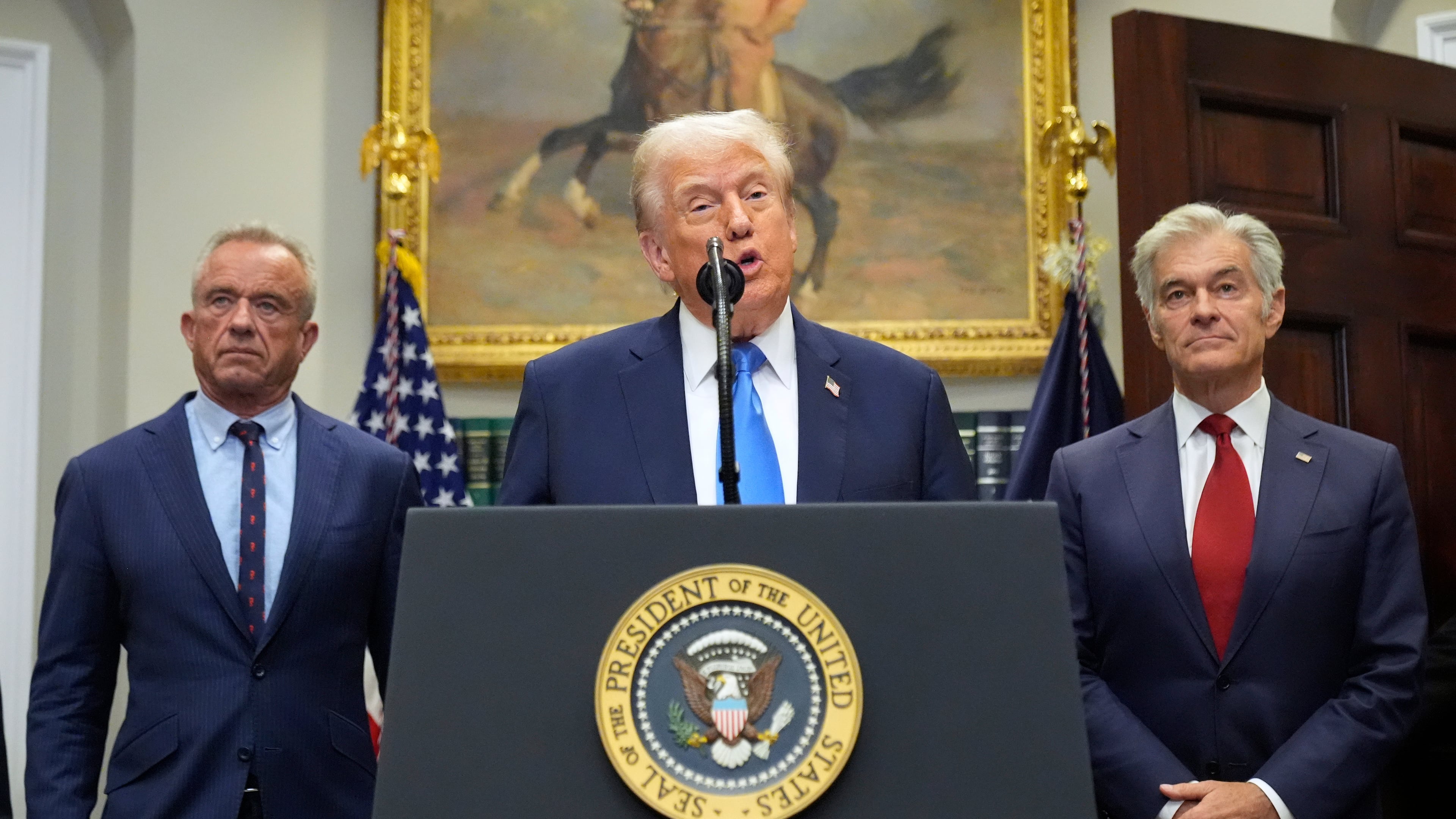Trump promotes unproven ties between Tylenol, vaccines and autism without new evidence

WASHINGTON (AP) — President Donald Trump on Monday used the platform of the presidency to promote unproven ties between Tylenol, vaccines and autism without giving new evidence.
Speaking from the White House, Trump said women should not take acetaminophen, also known by the brand name Tylenol, “during the entire pregnancy.” He said the Food and Drug Administration would begin notifying doctors that the use of acetaminophen “can be associated” with an increased risk of autism, but did not immediately provide any medical evidence for the FDA's new recommendation.
Trump also raised unfounded concerns about vaccines contributing to rising rates of autism, which affects 1 in 31 U.S. children today, according to the CDC. Health Secretary Robert F. Kennedy Jr said that at Trump's urging he is launching an “all-agency” effort to identify all causes of autism, involving the National Institutes of Health, the FDA, the Centers for Disease Control and Prevention and the Centers for Medicare and Medicaid Services.
Scientists, doctors and researchers have attributed increased rates of autism to greater awareness of the disorder and the newer, wide-ranging “spectrum” used to issue diagnoses for people with milder expressions of autism. It’s hard to tell if there may be additional factors behind the increase.
The Trump administration has been under immense pressure from Kennedy’s diverse Make America Healthy Again movement to provide answers on the causes of the marked increase in autism cases in the U.S. in recent years.
Experts say the rise in cases is mainly due to a new definition for the disorder that now includes mild cases on a “spectrum” and better diagnoses. They say there is no single cause to the disorder and say the rhetoric appears to ignore and undermine decades of science into the genetic and environmental factors that can play a role.
The announcement is the latest step the administration, driven by Kennedy and his supporters, has taken to reshape America’s public health landscape.
Beyond cutbacks at federal health agencies, the Centers for Disease Control and Prevention has been roiled by disagreements over Kennedy’s vaccine policies. An influential immunization panel stocked by Kennedy with figures who have been critical of vaccines last week changed shot guidance for COVID-19 and other diseases.
Trump on Sunday evening teased Monday’s announcement as a big one, telling reporters, “I think we found an answer to autism.” Experts say that oversells what would be possible from a presidential administration in its first year. They insist more research is needed to conclusively identify whether and how environmental factors may play a role in the disorder.
Kennedy for years has promoted debunked theories that vaccines could be responsible for rising rates of autism, which affects 1 in 31 U.S. children today, according to the CDC. Scientists, doctors and researchers have attributed that increase instead to greater awareness of the disorder and the newer, wide-ranging “spectrum” used to issue diagnoses for people with milder expressions of autism. It’s hard to tell if there may be additional factors behind the increase.
More Stories
The Latest
